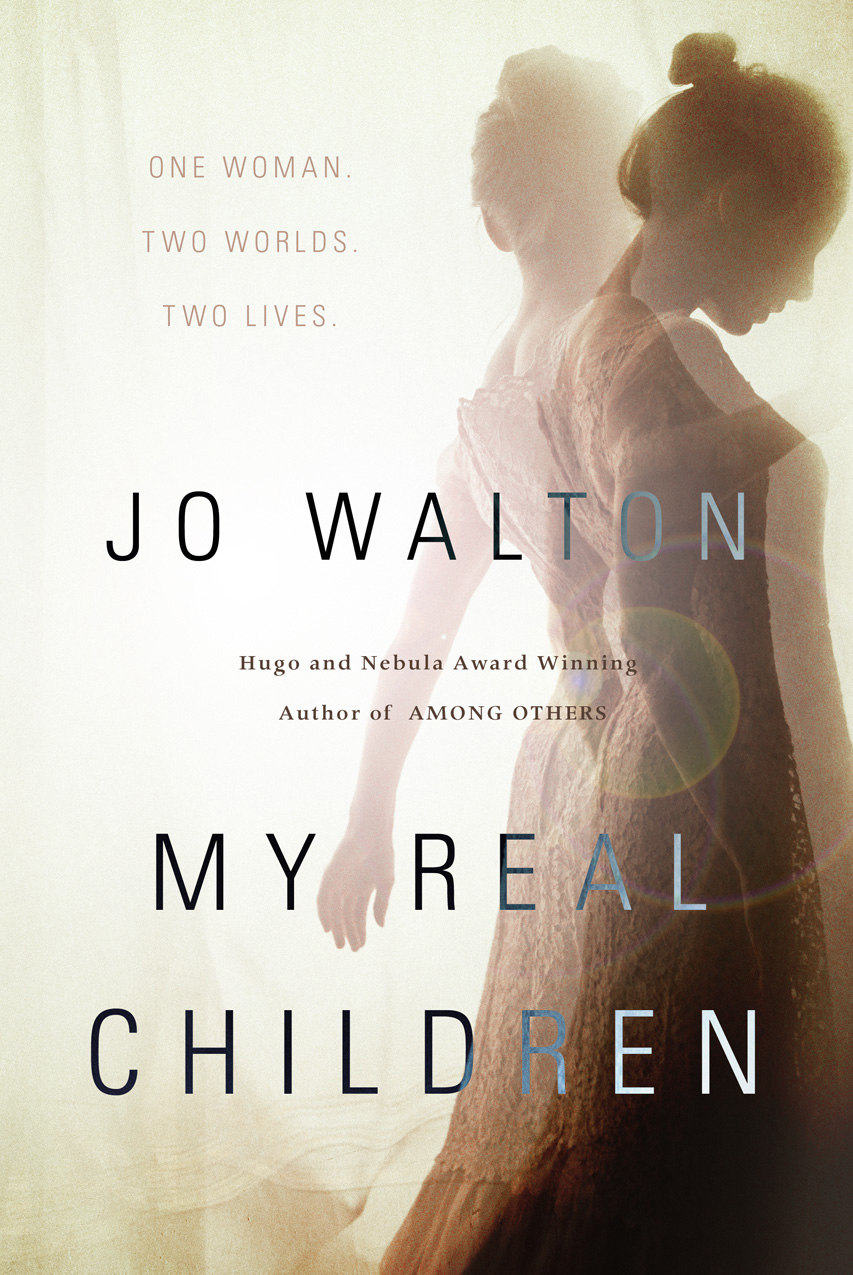 I find it very strange that I've now read four Jo Walton books, and the one that won a Hugo is my least favourite of the four. It's not that it's bad, but it really wasn't a book that I loved. In contrast, the other three books are ones that practically have me picking my jaw up off the floor with how good they are. Tooth and Claw convinced me that I did want to read about Victorian dragons, Farthing made me shudder with the potential reality of the vision of a fascist Britain (I don't even know if I could bear to read it today), and now My Real Children just knocked my socks off with how beautifully written and rich it is.
I find it very strange that I've now read four Jo Walton books, and the one that won a Hugo is my least favourite of the four. It's not that it's bad, but it really wasn't a book that I loved. In contrast, the other three books are ones that practically have me picking my jaw up off the floor with how good they are. Tooth and Claw convinced me that I did want to read about Victorian dragons, Farthing made me shudder with the potential reality of the vision of a fascist Britain (I don't even know if I could bear to read it today), and now My Real Children just knocked my socks off with how beautifully written and rich it is.It's science fiction, sort of, in that we're talking about two parallel universes. But this book isn't interested in the science of it, it's interested in the people. We first meet Patricia in a nursing home in 2015, her mind riddled with dementia, yet two sets of memories for all that. Two sets of children. Two nursing homes. She may be forgetting things, but the world seems to also shift back and forth around her.
From there, the book follows two paths her life could have taken, as Trish and as Pat, through the 20th century, in two worlds close to but neither our own. In one, she marries, unhappily, and raises four children while working to make the world a better place in ways small and local. In the other, she falls in love with a woman and the two raise three children in a world that is darker, and more riddled with the use of atomic weapons against humans. Pat comes to work for a better world too, but from a different platform and much later.
But more than that, this is a meditation on growing up, and in particular, growing old. Even more so, it's about caretaking - the people you choose to take care of, and those who end up in your path. Watching people you love grow old and die, or be young and die, suddenly, or lingeringly. It's about the inevitability of decline, and the role of those who have to be there to bear witness even as those they love are being ripped from them.
It is, quite frankly, an astounding accomplishment. I've been by one bedside as a person died - the week before my father died, as strokes caused by the cancer that had spread through him shut down who he was, what he could do, bit by bit. The days after he was ever going to wake up again, but still lived, and we sat and waited with him, in that curiously separate time that is not like anything else I've experienced. Walton captures that, so well, as both Pat and Trish take care of people they love (or in one case, someone she doesn't love but feel an obligation to.)
The ways the world diverge are fascinating, but the core of this is the people and what it means to be connected to one another, to take on responsibility with the love, and to build little worlds that we know are not forever, are not eternal, but all too fleeting and precious. We see lives where the balance between joy and sorrow may be different, but neither has all of one and none of the other. There is not a life that will not know sorrow.
And yet, there are worlds to be built and relationships and friendships and love to be had, even in the darkest of days, and that pulls us through. But does not relieve us of the responsibility to work for a better world - we never know what actions may tip the scale towards more openness, more love, more room.
No comments:
Post a Comment